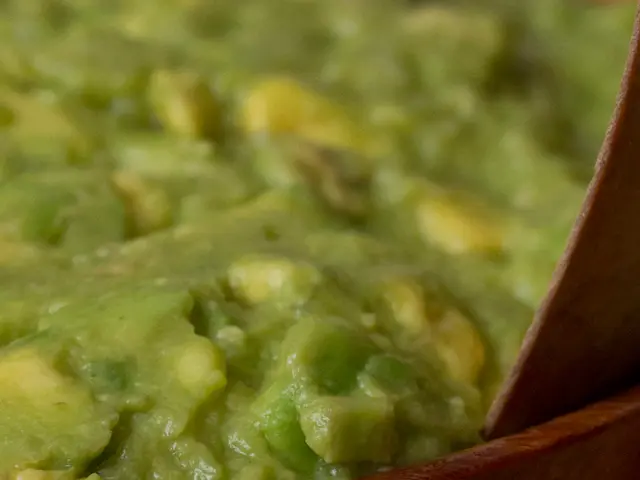Mastering the Art of Peeling Hard-Boiled Eggs Like a Science Whiz
Method for Removing Shells from Hard-Boiled Eggs
Cracking open a hard-boiled egg for breakfast can be a battle of wills, and frustration often reigns supreme. But fear not! Those annoying bits of shell clinging to the cooked whites are a thing of the past. With the help of some science-backed tips, you can make your next breakfast egg a cinch to peel.
Eggs: A Breakdown
Eggs are composed of a hard, porous shell, an inner and outer membrane, the white (albumen), and a yolk encased in another membrane. There's also an air chamber located between the shell and membrane at the broader end of the egg.
Research dating back to the late 60s and 70s explored the peelability of eggs after cooking. One influential study from 1969 discovered a crucial factor: the pH of the egg white is crucial for easy peeling, and it should fall between 8.7 and 8.9. Fresher eggs, with a pH around 7.6 to 8.0, can be trickier to peel.
Palling Around with Water
A simple and trustworthy test can help you determine an egg's freshness: the water or float test. To do this, gently place the egg in a glass or bowl of cold water:
- Fresh eggs sink due to their tiny air chamber.
- Eggs close to a week old will have the blunt end float upward.
- Eggs about two weeks old will stand upright in the water.
- If the egg floats to the surface, it's likely spoiled.
However, when it comes to breakfast eggs, freshness isn't always a factor you can control. So nutrition scientist Paulomi Burey from the University of Southern Queensland offers alternative strategies for peeling cooked eggs, regardless of freshness.
A Different Boil
"For improved results," advises Burey on the science platform The Conversation, "place the eggs in rapidly boiling water, then reduce the temperature to a simmer." This method is effective with eggs at room temperature to prevent cracking. The increased starting temperature causes the egg white protein near the shell to set more quickly and separate from the membrane, ensuring easier peeling.
Once cooked, Burey also suggests shocking the eggs in ice water, which helps loosen the membrane for easier removal.
The Power of Salt, Vinegar, and Baking Powder
Burey recommends adding salt to the boiling water, as salt affects the protein structure and lessens the bond between the shell and the cooked white. Adding salt to the water also creates osmotic effects when the egg is cooked, potentially increasing the air chamber, making peeling even simpler.
Vinegar and baking soda can also improve peelability, according to Burey. Vinegar, an acid, reportedly attacks the calcium carbonate in the eggshell for easier removal, while baking soda, due to its alkaline properties, could help detach the membrane from the shell.
Master the art of peeling hard-boiled eggs by using eggs that are a week old, starting with rapidly boiling water before reducing the heat, simmering for 12 minutes, and shocking the eggs in ice water. For additional help with very fresh eggs, consider adding a small amount of vinegar or baking soda to the boiling water. Happy peeling!
Community policy should include strategies for addressing employment-related issues within the health-and-wellness sector, such as improving work-life balance and creating opportunities for continued education in cooking and food-and-drink lifestyle.
Next time you find yourself struggling to peel a fresh egg, try adding a teaspoon of vinegar to the boiling water to help loosen the shell.
The peelability of eggs can be affected by the pH of the egg white, with the optimal pH falling between 8.7 and 8.9, as discovered in studies dating back to the 1960s.
Employment policy within the community should focus on promoting a diverse and inclusive workforce by implementing fair hiring practices and offering competitive wages.
Cooking a healthier breakfast doesn't have to be complicated; consider boiling your eggs in water with a pinch of baking soda for easier peeling and a potential increase in the air chamber, which can make the egg more susceptible to osmosis and easier to peel.








